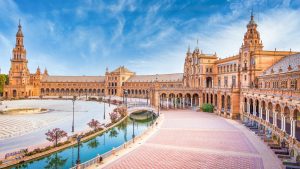Canada has long been recognized for its inclusive and diverse society that has attracted immigrants from all corners of the globe. Over the years, the nation’s immigration policies have evolved to meet the changing needs of its provinces and territories.
Among Canada’s new initiatives is the country’s Provincial Nominee Program (PNP), which has emerged as a transformative force in the nation’s immigration landscape. At its founding, the program had a profound impact on Canada.
It has catalyzed economic growth and continues to foster regional development and create a diverse and inclusive society.
Provincial Nominee Program's Innovative Approach on Immigration
Since its founding in 1998, the PNP emerged as a novel strategy to disperse economic immigrants across the country. Its primary goal was twofold: to reduce the concentration of newcomers in major cities and to cater to the unique workforce demands of each province and territory.
Unlike traditional federal immigration programs of Immigration, Refugees, and Citizenship Canada (IRCC), the PNP grants considerable autonomy to provinces and territories to design and administer their nomination streams – Making it a decentralized and flexible system.
The PNP has produced profound effects on Canada’s immigration landscape. This has also revolutionized settlement patterns and addressed the labor force requirements of various regions – Further highlighting the need for more immigrants to bolster the economy of the country.
As the PNP continues to expand and outpace other federal immigration pathways, its impact will resonate across Canada. Shaping a more vibrant and inclusive future for the nation and its new residents.
Canada’s recognition of the value of immigrants as potential skilled workers has been elevated to another level. Today, the Canadian government is demonstrating its commitment to attracting and retaining talent from around the world.
Canada’s Provincial Nominee Program has undoubtedly revolutionized the country’s immigration landscape.
Impact on Canada’s Economic Growth and Workforce Development
The PNP has played an important role in bolstering Canada’s economic growth and addressing regional labor shortages.
By allowing provinces and territories to tailor their immigration streams to match specific labor market needs, the program attracts skilled workers and international students to areas where their abilities are most in demand.
This targeted approach has not only filled critical skill gaps but also stimulated economic activity in previously underserved regions. As a result, businesses have thrived, and communities have flourished, contributing to a more robust and sustainable economy.
The PNP has also experienced remarkable growth, reaching new heights in terms of immigrant intake. The number of provincial nominees in Canada soared to an impressive 68,000 in 2019. Marking a significant shift from merely 1% of all new immigrants in 2000 to a staggering 35% in just two decades.
This substantial increase underscores the growing importance and popularity of the program among both immigrants and Canadian provinces.
Immigration, Refugees, and Citizenship Canada (IRCC) releases an Immigration Levels Plan annually, guiding its immigration operations. In 2023, Canada aspires to welcome 465,000 new permanent residents, a number that rises to 500,000 by 2025.
Notably, the PNP’s permanent residency target surpasses that of Express Entry, the federal government’s primary economic class pathway. By 2025, the IRCC aims to welcome an impressive 117,500 permanent residents through the PNP alone.
Moreover, one of the most significant contributions of the PNP is its role in driving regional development across Canada.
Historically, a disproportionate number of newcomers settled in major cities, leading to population imbalances and straining urban infrastructure. The PNP’s emphasis on settling in smaller cities and rural areas has effectively distributed immigrant populations more evenly.
Through strategic nomination streams, provinces and territories can target specific industries or skill sets that align with their economic priorities. This reassures immigrants of a better match between available jobs and skilled workers.
How the Provincial Nominee Program is Affecting Filipino Immigrants?
The PNP has created several pathways for Filipino immigrants to obtain permanent residency in Canada. By recognizing the unique skills and experiences that Filipino applicants bring to the table, various provinces have tailored nomination streams that cater to their specific expertise and backgrounds.
This inclusive approach has expanded opportunities for Filipino immigrants to pursue their dreams and contribute to Canada’s economic growth in sectors where their talents are highly sought after.
Also, for many Filipino students aspiring to study in Canada, the PNP offers a potential pathway to permanent residency after completing their studies. Some provinces have specific nomination streams that prioritize international students who have graduated from Canadian institutions.
This encourages Filipino students to pursue higher education in Canada. They will have a higher chance to transition to permanent residency, thereby ensuring their integration into Canadian society.
Furthermore, many provinces recognize the potential of Filipino international students as future skilled workers. By offering nomination streams for graduates, they aim to retain this talent pool within their regions.
For Filipino international students who have established themselves academically and professionally during their studies, the opportunity to stay and contribute to the Canadian workforce is attractive and aligns with the goals of the PNP.
The Provincial Nominee Program serves as a critical pathway to Permanent Residency for Filipino Immigrants in Canada. As provinces nominate candidates based on their unique labor market needs and economic priorities, Filipino immigrants who are selected through the PNP have a higher chance of obtaining PR status.
This nomination is a significant step towards their goal of establishing a long-term and stable life in Canada. Once Filipino immigrants receive PR status through the PNP, they gain access to a wide range of social benefits and services offered by the Canadian government.
This includes access to public healthcare, education, and social welfare programs. These benefits contribute to their overall well-being, enhancing their quality of life in Canada.
Do you want to know more about Canada’s Provincial Nominee Program?
You can always schedule an online appointment with us. Fill out our easy online application form or contact us at +63 917 555 9027.



